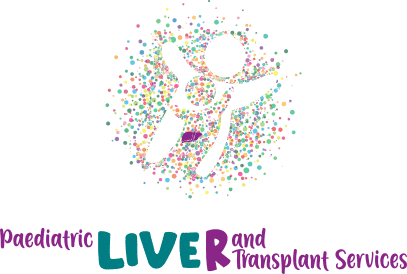When a child is diagnosed with liver disease, families often focus on tests, medicines, and hospital visits. But there’s another crucial part of treatment that can make a huge difference: nutrition.
Whether your child is waiting for a liver transplant or managing a liver condition like biliary atresia, autoimmune hepatitis, or metabolic liver disease, what they eat—and how much they are able to absorb—matters deeply.
How Does Liver Disease Affect Nutrition?
The liver plays a major role in digestion. It helps break down fat, stores important nutrients, and processes proteins. When the liver is not working well, all of this gets disrupted. As a result:
- Your child may not absorb enough fat or vitamins (especially A, D, E, and K).
- They may feel too tired or nauseous to eat properly.
- They may burn more energy because their body is fighting inflammation.
- They may lose muscle and strength, especially during illness or surgery.
Why Good Nutrition Helps Healing
A child with liver disease needs more nutrients than usual to stay strong. Proper nutrition can:
✅ Support growth and development
✅ Help fight infections
✅ Improve recovery after surgery or transplant
✅ Reduce time spent in hospital
Even if your child looks “chubby,” they might be losing muscle underneath—which is why doctors use special measurements like the mid-upper arm circumference (MUAC) to check nutritional status.
How Can Parents Help?
Here’s what you can do at home and with your medical team:
- Work with a Dietitian: Ask for a personalised nutrition plan. Some children need extra calories, protein, or special formulas.
- Watch for Vitamin Deficiencies: Your child might need extra vitamins, especially the fat-soluble ones (A, D, E, and K).
- Consider Tube Feeding or Supplements: If your child struggles to eat, don’t be alarmed if the team suggests temporary tube feeding—it can be life-saving.
- Track Growth: Keep an eye on your child’s weight, height, and MUAC (your doctor will do this too).
- Ask Questions: Never hesitate to ask how food, supplements, or feeding plans will help your child.
After Transplant—Still Important!
Even after a successful liver transplant, good nutrition remains essential. Healing from surgery, rebuilding muscles, and adjusting to new medications all require strong nutrition support. Your healthcare team will guide you every step of the way.
Remember
You are your child’s strongest advocate—and food is one of your most powerful tools. On this journey, nutrition is not just about eating. It’s about nourishing hope, healing, and a healthier future.
If you ever feel overwhelmed, ask your child’s doctor or paediatric dietitian experienced in liver disease. Together, we can help your child grow, thrive, and shine—one meal at a time.

